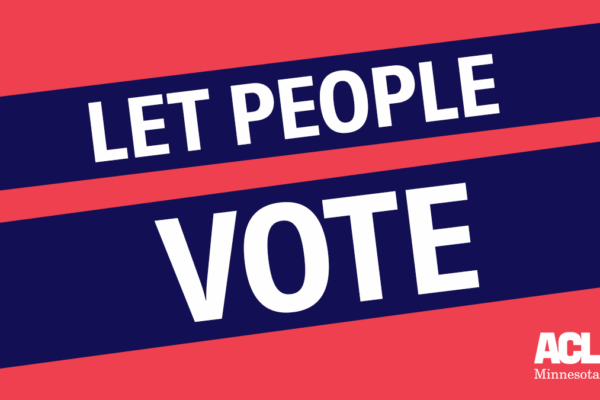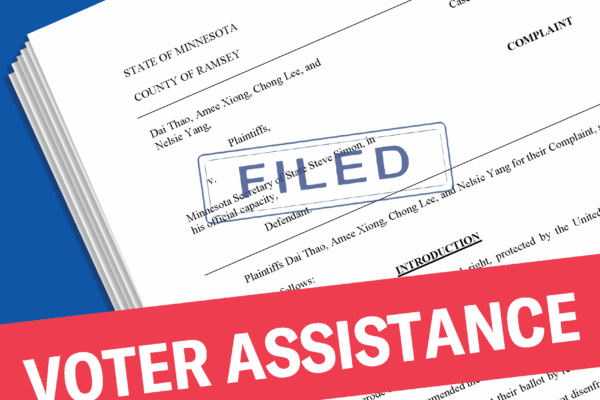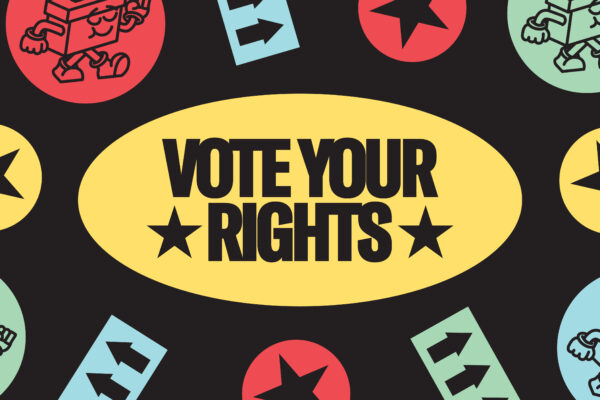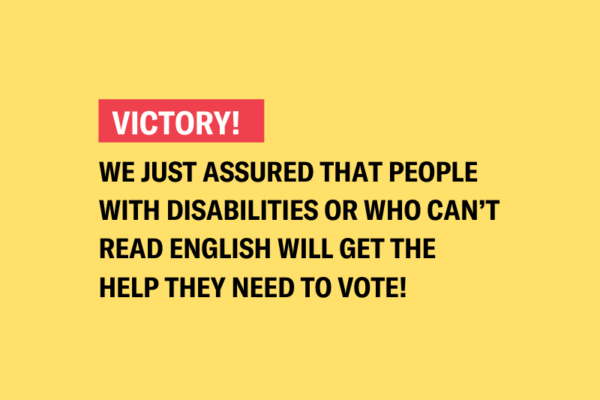SAINT PAUL -- When a Hmong woman with a visual impairment asked her neighbor Dai Thao to help her cast her vote, he had no idea he would face criminal charges.
Even though the woman needed help seeing and translating her ballot, Minnesota law made assisting her a crime. Thao was running for office, and state law forbids candidates from helping someone cast a ballot, even if that voter asks for help because they have a disability, cannot read or write, or face language barriers. State law also makes it a crime for someone to help more than three people vote, even when the voters face these same challenges.
That’s why the ACLU of Minnesota filed Dai Thao et al. v. Minnesota Secretary of State Steve Simon in Ramsey County District Court Tuesday seeking to ensure that people who need help voting at the polls will get it.
“Voting is a fundamental right in our democracy, and it’s disgraceful that state law makes it more difficult to vote for people who have a disability, cannot read or write, or face language barriers,” said ACLU-MN staff attorney David McKinney. “Our state law limiting the help these voters can access blatantly violates the state and U.S. Constitutions and the federal Voting Rights Act.”
The Voting Rights Act explicitly allows people who need assistance to choose who will help them to ensure voters are not disenfranchised because of disability or language barriers.
The ACLU-MN’s plaintiffs include Thao, who was found not guilty on all counts; his wife Amee Xiong; Nelsie Yang, the first Hmong-American woman on the Saint Paul City Council; and Chong Lee, a first-generation Hmong-American born in Thailand who at one point needed help voting. Xiong and Lee are both community organizers who want to help voters in need of assistance, but find that state law limits their ability to do so.
“I am proud to fight against the injustice of voter suppression,” Thao said. “This statute unfairly limits the ability of vulnerable voters who want to exercise the most basic demonstration of a democracy -- the right to vote. No one should be prosecuted under these statutes as I was."
This law has a disproportionate impact on refugee communities including the Hmong people. The Twin Cities has the nation’s largest Hmong population, according to a 2015 Pew Research Center fact sheet. Nationally, only 56 percent of Hmong adults are English-proficient, which can create barriers to voting.
Nearly 11% of Minnesotans have a disability, including 78,407 Minnesotans of voting age with vision difficulties, according to the 2017 American Community Survey.
Pro bono counsel include Michael Florey and Veena Tripathi of Fish & Richardson; and Joseph Dixon and Alethea Huyser from Fredrikson & Byron P.A.
The ACLU-MN is a nonprofit, nonpartisan organization that works to defend the civil liberties of all Minnesotans. Learn more at www.aclu-mn.org.
Related Content

ACLU Sues to Restore Voting Rights in Minnesota
Stay Informed
Sign up to be the first to hear about how to take action.
By completing this form, I agree to receive occasional emails per the terms of the ACLU’s privacy statement.
By completing this form, I agree to receive occasional emails per the terms of the ACLU’s privacy statement.



